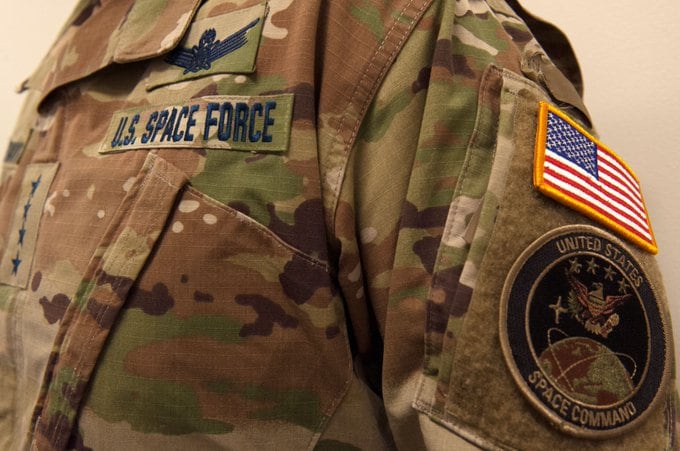To the very esteemed members of Space Force and other grand poohbahs of the United States government agencies who may have a say in this, I have one question for you:
What the heck is wrong with you?
I’m talking about the ranks of the Space Force!
What are you doing to us? 😱 There was no Colonel Kirk; not even in the mirror universe (which is what 2020 feels like at times.)
Do you know your entertainment space history? 🤔 🤷♂️
Let me show you what I mean.
RELATED

Throughout entertainment history, which precedes actual space flight history by decades, we had captains:
“Le Voyage Dans La Lune” (”A Trip to the Moon,” 1902) — the earliest known space film — had a captain in command of the rocket ship played by Henri Delannoy.
Captain Buck Rogers was a WW2 Navy pilot who awoke 500 years later to a new world.
In WW2, Navy fighter pilot Donald “Flash” Gordon was a captain [who] took his nickname from the science fiction show where Flash did not have any rank of title bestowed upon him. Even with no title; the name is coincidentally adopted by a “captain.”
“2001: A Space Odyssey” (1968) had a lunar shuttle captain.
In the movie “Alien” (1979). the ship Nostromo was “captained” by Tom Skerritt’s character: Dallas.
And even though it pains me 😩 to point out, Han Solo was “captain” of the Millennium Falcon.
In addition, there are plenty of captains beyond Star Trek and space franchises. There’s Captain America, Captain Marvel, Captain Midnight, Captain Planet, Captain Cook, to name just a few.
So, what am I getting at 🤷♂️ (I’m getting there…just give me a moment.) 😤 It’s been a captain throughout entertainment history that have gone into space and been the heroes that saved the day, the planet, the galaxy and the universe. Where in any of this rich history of inspired heroes travelling into space was there a…colonel?
Shall we have look?
Let’s start with major (two ranks below colonel).
Major Don West’s ineptness caused the space family Robinson to be “Lost in Space” on their space ship the Jupiter 2 forever.
There’s Major Anthony Nelson — who piloted a spacecraft that came crashing down next to a deserted island where he found an ancient bottle that contained a woman named Jeannie and brought the attention of Colonel Alfred Bellows to him for his crazy antics at NASA.
We cannot forget USAF Colonel Steve Austin, an astronaut who crashed his ship and severely injured himself that cost taxpayers $6 million to put him back together, who was portrayed by my dear friend, Lee Majors.
Finally, there was Colonel Wilhelm Klink of “Hogan’s Heroes.” Granted the show was not set in space nor was he in command of a space ship, but was one of the ineptest characters ever put on TV that was beautifully portrayed by Werner Kleperer and he held the rank of a colonel.
This is how Army ranks (and colonels in particular) are portrayed to the public by Hollywood.
“Star Trek” has borrowed so much of its iconic rank symbols from the U.S. military and NASA. When you unveiled the Space Force logo, many immediately saw it as an homage to “Star Trek” (even though our Delta was an homage to the previous military space insignias). Why not borrow back from “Star Trek” and adopt our ranks as well? We took them from the Navy for good reason, even though Gene Roddenberry was a veteran of the U.S. Army Air Corps. They made better sense when talking about a (space) ship.
So wrapping this up, I’m going to say that if you want the public to believe in heroes, that you should adopt the Navy ranks as they are the ones the public is most used to being heroes.
So please reconsider and name the Space Force ranks after the U.S. Navy.
Just my “colonel” of wisdom. 😘
My best,
Bill Shatner
William Shatner is a Canadian-born actor whose portrayal of Starfleet Capt. James T. Kirk is one of the most iconic roles in the history of science fiction pop culture.
Editor’s note: This is an Op-Ed and as such, the opinions expressed are those of the author. If you would like to respond, or have an editorial of your own you would like to submit, please contact Military Times managing editor Howard Altman, haltman@militarytimes.com.




